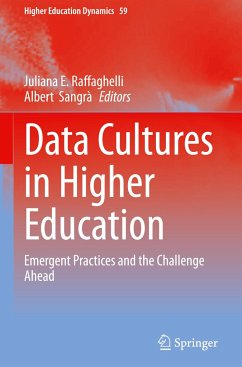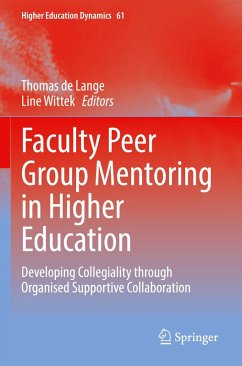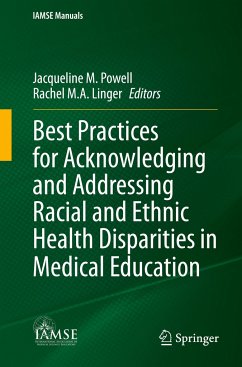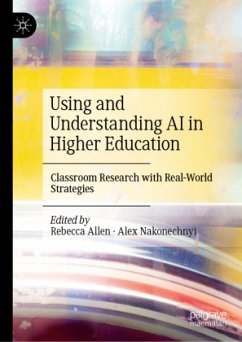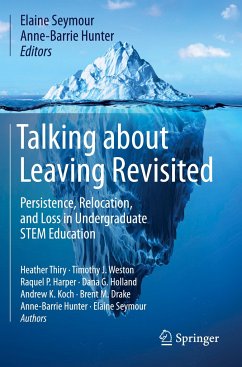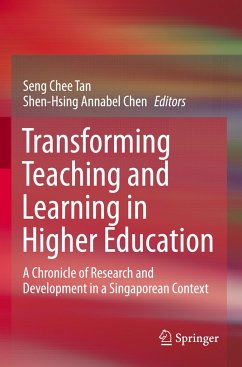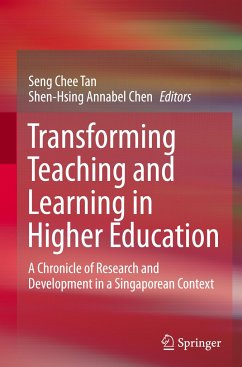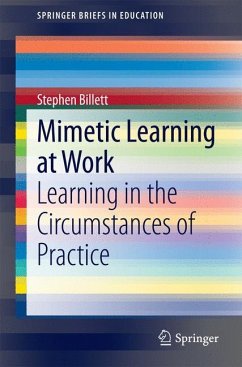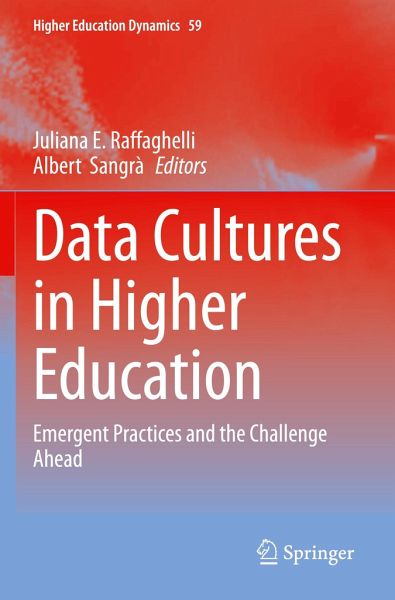
Data Cultures in Higher Education
Emergent Practices and the Challenge Ahead
Herausgegeben: Raffaghelli, Juliana E.; Sangrà, Albert
Versandkostenfrei!
Versandfertig in 6-10 Tagen
121,99 €
inkl. MwSt.

PAYBACK Punkte
61 °P sammeln!
This collection focuses on the role of higher education institutions concerning datafication as a complex phenomenon. It explores how the universities can develop data literac(ies) shaping tomorrow skills and "formae mentis" to face the most deleterious effects of datafication, but also to engage in creative and constructive ways with data. Notably, the book spots data practices within the two most relevant sides of academics' professional practice, namely, research and teaching. Hence, the collection seeks to reflect on faculty's professional learning about data infrastructures and practices....
This collection focuses on the role of higher education institutions concerning datafication as a complex phenomenon. It explores how the universities can develop data literac(ies) shaping tomorrow skills and "formae mentis" to face the most deleterious effects of datafication, but also to engage in creative and constructive ways with data. Notably, the book spots data practices within the two most relevant sides of academics' professional practice, namely, research and teaching. Hence, the collection seeks to reflect on faculty's professional learning about data infrastructures and practices.
The book draws on a range of studies covering the higher education response to the several facets of data in society, from data surveillance and the algorithmic control of human behaviour to empowerment through the use of open data. The research reported ranges from literature overviews to multi-case and in-depth case studies illustrating institutional and educational responses to different problems connected to data.
The ultimate intention is to provide conceptual bases and practical examples relating to universities' faculty development policies to overcome data practices and discourses' fragmentation and contradictions: in a nutshell, to build "fair data cultures" in higher education.
The book draws on a range of studies covering the higher education response to the several facets of data in society, from data surveillance and the algorithmic control of human behaviour to empowerment through the use of open data. The research reported ranges from literature overviews to multi-case and in-depth case studies illustrating institutional and educational responses to different problems connected to data.
The ultimate intention is to provide conceptual bases and practical examples relating to universities' faculty development policies to overcome data practices and discourses' fragmentation and contradictions: in a nutshell, to build "fair data cultures" in higher education.



